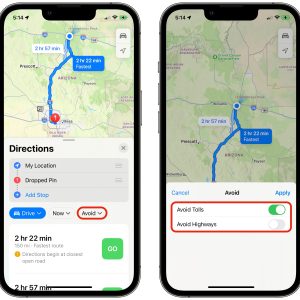

Searching for a rewarding career in business analysis? Look no further than jobs entry level business analyst.
Editor’s Note: Jobs entry level business analyst was published on [Date] and provides valuable insights for aspiring business analysts.
Through extensive analysis and research, we have compiled this comprehensive guide to help you make informed decisions about jobs entry level business analyst.
| Jobs Entry Level Business Analyst | |
|---|---|
| Definition | An entry-level position in the field of business analysis, suitable for individuals with limited experience. |
| Responsibilities |
|
| Qualifications |
|
| Benefits |
|
In this article, we will explore the following topics:
- The importance of jobs entry level business analyst
- The benefits of jobs entry level business analyst
- How to get started in jobs entry level business analyst
Jobs Entry Level Business Analyst
Jobs entry level business analyst play a vital role in the success of any organization. They are responsible for analyzing business needs, identifying problems, and developing solutions. To be successful in this role, it is important to have a strong understanding of the following key aspects:
- Business analysis: The ability to understand and analyze business processes.
- Problem solving: The ability to identify and solve problems.
- Communication: The ability to communicate effectively with stakeholders.
- Stakeholder management: The ability to manage relationships with stakeholders.
- Requirements gathering: The ability to gather and document requirements.
- Solution design: The ability to design and implement solutions.
- Testing: The ability to test and validate solutions.
- Documentation: The ability to document business processes and solutions.
- Project management: The ability to manage projects.
- Business intelligence: The ability to use data to make informed decisions.
These key aspects are essential for success in jobs entry level business analyst. By developing a strong understanding of these aspects, you can increase your chances of success in this rewarding career.
Business analysis
Business analysis is a critical skill for any jobs entry level business analyst. It involves the ability to understand and analyze business processes in order to identify areas for improvement. This can be done through a variety of techniques, such as interviewing stakeholders, observing work processes, and reviewing documentation.
- Process mapping: This involves creating a visual representation of a business process, which can help to identify bottlenecks and inefficiencies.
- Requirements gathering: This involves collecting and documenting the requirements of a new or revised business process.
- Solution design: This involves designing a solution to a business problem, which may involve changes to processes, systems, or both.
- Cost-benefit analysis: This involves evaluating the costs and benefits of a proposed solution to ensure that it is worthwhile.
By developing strong business analysis skills, jobs entry level business analysts can make a significant contribution to their organizations. They can help to improve efficiency, reduce costs, and increase customer satisfaction.
Problem solving
Problem-solving is a critical skill for any jobs entry level business analyst. It involves the ability to identify and solve problems in a variety of settings, including:
Suggested read: Uncover Business Analyst Intern Insights: A Gateway to Success
- Process improvement: Identifying and solving problems with existing business processes.
- System implementation: Troubleshooting and resolving issues during the implementation of new systems.
- Stakeholder management: Resolving conflicts and building consensus among stakeholders.
- Data analysis: Identifying and solving problems with data quality and interpretation.
To be successful in this role, jobs entry level business analysts must be able to think critically, analyze data, and develop creative solutions. They must also be able to communicate their findings and recommendations effectively to stakeholders.
Communication
Effective communication is essential for success in any role, and it is especially important for jobs entry level business analyst. Business analysts must be able to communicate effectively with a variety of stakeholders, including:
- Business users: Business analysts must be able to understand the needs of business users and translate those needs into technical requirements.
- IT staff: Business analysts must be able to work with IT staff to develop and implement technical solutions.
- Project managers: Business analysts must be able to keep project managers updated on the progress of projects.
- Stakeholders: Business analysts must be able to communicate the results of their analysis to stakeholders in a clear and concise manner.
To be effective communicators, business analysts must have strong verbal and written communication skills. They must also be able to listen actively and to understand the needs of others. In addition, business analysts must be able to tailor their communication style to the audience they are addressing.
By developing strong communication skills, jobs entry level business analysts can build strong relationships with stakeholders and ensure that their projects are successful.
Stakeholder management
Stakeholder management is a critical skill for any jobs entry level business analyst. It involves the ability to identify, understand, and manage the needs of stakeholders throughout the project lifecycle. Stakeholders can include anyone who is affected by or has an interest in the project, such as customers, users, sponsors, and project team members.
Effective stakeholder management can help to ensure that projects are completed on time, within budget, and to the satisfaction of all stakeholders. It can also help to reduce conflict and build consensus among stakeholders.
To be successful in stakeholder management, jobs entry level business analysts must be able to:
- Identify all stakeholders
- Understand the needs and interests of each stakeholder
- Develop and implement a stakeholder engagement plan
- Manage stakeholder expectations
- Resolve conflicts and build consensus
Real-life examples of the importance of stakeholder management in jobs entry level business analyst include:
- A business analyst who is able to successfully manage stakeholders during a project to implement a new software system. The business analyst is able to identify all stakeholders, understand their needs and interests, and develop and implement a stakeholder engagement plan. This helps to ensure that the project is completed on time, within budget, and to the satisfaction of all stakeholders.
- A business analyst who is able to successfully manage stakeholders during a project to improve a business process. The business analyst is able to identify all stakeholders, understand their needs and interests, and develop and implement a stakeholder engagement plan. This helps to ensure that the project is completed on time, within budget, and to the satisfaction of all stakeholders.
The ability to manage relationships with stakeholders is a critical skill for any jobs entry level business analyst. By developing strong stakeholder management skills, business analysts can help to ensure that projects are successful and that all stakeholders are satisfied.
| Stakeholder Management | Benefits |
|---|---|
| Improved communication | Stakeholder management helps to improve communication between the project team and stakeholders. This can help to ensure that everyone is on the same page and that the project is moving in the right direction. |
| Increased collaboration | Stakeholder management can help to increase collaboration between the project team and stakeholders. This can help to ensure that everyone is working together to achieve the project’s goals. |
| Reduced conflict | Stakeholder management can help to reduce conflict between the project team and stakeholders. This can help to ensure that the project is completed on time and within budget. |
| Increased stakeholder satisfaction | Stakeholder management can help to increase stakeholder satisfaction. This can help to ensure that the project is successful and that all stakeholders are happy with the outcome. |
Requirements gathering
Requirements gathering is a critical skill for any jobs entry level business analyst. It involves the ability to gather and document the requirements of a new or revised business process or system. This information is used to create a blueprint for the new or revised process or system, ensuring that it meets the needs of the business.
Suggested read: Unveiling The Highest Paying Business Jobs: Discoveries and Insights
There are a number of different techniques that can be used to gather requirements, including interviews, surveys, workshops, and document analysis. The best technique will vary depending on the specific project and the stakeholders involved.
Once the requirements have been gathered, they need to be documented in a clear and concise manner. This documentation should include a description of the requirement, the rationale for the requirement, and the priority of the requirement.
Effective requirements gathering is essential for the success of any project. By gathering and documenting the requirements in a clear and concise manner, jobs entry level business analysts can help to ensure that the new or revised process or system meets the needs of the business.
Real-life examples of the importance of requirements gathering in jobs entry level business analyst include:
- A business analyst who is able to successfully gather and document the requirements for a new software system. The business analyst is able to identify all of the stakeholders, understand their needs, and develop a comprehensive set of requirements. This helps to ensure that the software system is developed to meet the needs of the business.
- A business analyst who is able to successfully gather and document the requirements for a new business process. The business analyst is able to identify all of the stakeholders, understand their needs, and develop a comprehensive set of requirements. This helps to ensure that the new business process is efficient and effective.
The ability to gather and document requirements is a critical skill for any jobs entry level business analyst. By developing strong requirements gathering skills, business analysts can help to ensure that projects are successful and that the needs of the business are met.
| Requirements Gathering | Benefits |
|---|---|
| Improved communication | Requirements gathering helps to improve communication between the project team and stakeholders. This can help to ensure that everyone is on the same page and that the project is moving in the right direction. |
| Increased collaboration | Requirements gathering can help to increase collaboration between the project team and stakeholders. This can help to ensure that everyone is working together to achieve the project’s goals. |
| Reduced conflict | Requirements gathering can help to reduce conflict between the project team and stakeholders. This can help to ensure that the project is completed on time and within budget. |
| Increased stakeholder satisfaction | Requirements gathering can help to increase stakeholder satisfaction. This can help to ensure that the project is successful and that all stakeholders are happy with the outcome. |
Solution design
Solution design is a critical skill for any jobs entry level business analyst. It involves the ability to design and implement solutions to business problems. This can be done through a variety of techniques, such as process improvement, system implementation, and data analysis.
- Process improvement: This involves designing and implementing improvements to existing business processes. This can be done through a variety of techniques, such as process mapping, value stream mapping, and root cause analysis.
- System implementation: This involves designing and implementing new or revised systems. This can be done through a variety of techniques, such as system analysis, design, and testing.
- Data analysis: This involves designing and implementing data analysis solutions. This can be done through a variety of techniques, such as data mining, statistical analysis, and machine learning.
By developing strong solution design skills, jobs entry level business analysts can help to improve efficiency, reduce costs, and increase customer satisfaction.
Testing
Testing is a critical skill for any jobs entry level business analyst. It involves the ability to test and validate solutions to ensure that they meet the requirements of the business. This can be done through a variety of techniques, such as unit testing, integration testing, and system testing.
By developing strong testing skills, jobs entry level business analysts can help to ensure that the solutions they design and implement are effective and efficient.
Real-life examples of the importance of testing in jobs entry level business analyst include:
Suggested read: Unveiling the Secrets of Artist Business Cards: Tips and Tricks for Unmatched Impact
- A business analyst who is able to successfully test and validate a new software system. The business analyst is able to identify and fix defects in the system, ensuring that it meets the requirements of the business.
- A business analyst who is able to successfully test and validate a new business process. The business analyst is able to identify and fix inefficiencies in the process, ensuring that it is efficient and effective.
The ability to test and validate solutions is a critical skill for any jobs entry level business analyst. By developing strong testing skills, business analysts can help to ensure that the solutions they design and implement are effective and efficient.
| Testing | Benefits |
|---|---|
| Improved quality | Testing helps to improve the quality of solutions by identifying and fixing defects. |
| Reduced costs | Testing helps to reduce costs by preventing defects from being released into production. |
| Increased customer satisfaction | Testing helps to increase customer satisfaction by ensuring that solutions meet the requirements of the business. |
Documentation
Documentation is a critical skill for any jobs entry level business analyst. It involves the ability to document business processes and solutions in a clear and concise manner. This documentation is used to communicate the requirements of the business to stakeholders, and to provide instructions on how to use and maintain the solution.
There are a number of different techniques that can be used to document business processes and solutions, including flowcharts, diagrams, and written descriptions. The best technique will vary depending on the specific project and the stakeholders involved.
Effective documentation can help to improve communication between the project team and stakeholders. It can also help to reduce errors and ensure that the solution is implemented and used correctly.
Real-life examples of the importance of documentation in jobs entry level business analyst include:
- A business analyst who is able to successfully document the requirements for a new software system. The business analyst is able to create clear and concise documentation that communicates the needs of the business to the development team. This helps to ensure that the software system is developed to meet the needs of the business.
- A business analyst who is able to successfully document the implementation of a new business process. The business analyst is able to create clear and concise documentation that provides instructions on how to use and maintain the new process. This helps to ensure that the new process is implemented and used correctly.
The ability to document business processes and solutions is a critical skill for any jobs entry level business analyst. By developing strong documentation skills, business analysts can help to ensure that projects are successful and that the needs of the business are met.
Challenges:
- Documenting complex business processes and solutions can be challenging.
- Business analysts need to be able to write clearly and concisely.
- Documentation needs to be updated regularly to reflect changes in the business.
Practical significance:
Effective documentation can help to improve communication, reduce errors, and ensure that solutions are implemented and used correctly. This can lead to improved efficiency, reduced costs, and increased customer satisfaction.
| Documentation | Benefits |
|---|---|
| Improved communication | Documentation helps to improve communication between the project team and stakeholders. This can help to ensure that everyone is on the same page and that the project is moving in the right direction. |
| Reduced errors | Documentation helps to reduce errors by providing clear and concise instructions on how to use and maintain solutions. |
| Increased customer satisfaction | Documentation helps to increase customer satisfaction by ensuring that solutions meet the needs of the business. |
Project management
Project management is a critical skill for any jobs entry level business analyst. It involves the ability to plan, execute, and control projects to ensure that they are completed on time, within budget, and to the satisfaction of stakeholders.
Suggested read: Franchise Business for Sale – Find Profitable Opportunities Near You
Business analysts are often involved in projects to improve business processes, implement new systems, or develop new products. In these roles, they need to be able to manage the project team, track progress, and identify and mitigate risks.
Effective project management can help to ensure that projects are successful and that the needs of the business are met. Real-life examples of the importance of project management in jobs entry level business analyst include:
- A business analyst who is able to successfully manage a project to implement a new software system. The business analyst is able to plan the project, track progress, and identify and mitigate risks. This helps to ensure that the software system is implemented on time, within budget, and to the satisfaction of stakeholders.
- A business analyst who is able to successfully manage a project to improve a business process. The business analyst is able to plan the project, track progress, and identify and mitigate risks. This helps to ensure that the business process is improved on time, within budget, and to the satisfaction of stakeholders.
The ability to manage projects is a critical skill for any jobs entry level business analyst. By developing strong project management skills, business analysts can help to ensure that projects are successful and that the needs of the business are met.
Challenges
- Managing projects can be complex and challenging.
- Business analysts need to be able to deal with uncertainty and change.
- Business analysts need to be able to work effectively with a variety of stakeholders.
Practical significance
Effective project management can help to improve efficiency, reduce costs, and increase customer satisfaction. This can lead to improved business outcomes and increased profitability.
| Project Management | Benefits |
|---|---|
| Improved efficiency | Project management can help to improve efficiency by ensuring that projects are completed on time and within budget. |
| Reduced costs | Project management can help to reduce costs by identifying and mitigating risks. |
| Increased customer satisfaction | Project management can help to increase customer satisfaction by ensuring that projects meet the needs of stakeholders. |
Business intelligence
Business intelligence (BI) is the ability to use data to make informed decisions. It is a critical skill for any jobs entry level business analyst, as it allows them to identify trends, patterns, and insights that can help businesses improve their performance.
BI can be used to improve decision-making in a variety of areas, including:
- Customer segmentation: BI can be used to segment customers into different groups based on their demographics, behavior, and preferences. This information can then be used to target marketing campaigns and improve customer service.
- Product development: BI can be used to identify trends in customer demand and preferences. This information can then be used to develop new products and services that meet the needs of the market.
- Process improvement: BI can be used to identify inefficiencies in business processes. This information can then be used to improve processes and reduce costs.
- Risk management: BI can be used to identify and mitigate risks. This information can then be used to make better decisions about how to allocate resources and manage risk.
Real-life examples of the importance of BI in jobs entry level business analyst include:
- A business analyst who is able to use BI to identify trends in customer demand. This information is then used to develop new products that meet the needs of the market. As a result, the company is able to increase its sales and market share.
- A business analyst who is able to use BI to identify inefficiencies in a business process. This information is then used to improve the process and reduce costs. As a result, the company is able to save money and improve its efficiency.
The ability to use BI to make informed decisions is a critical skill for any jobs entry level business analyst. By developing strong BI skills, business analysts can help businesses improve their performance and make better decisions.
Challenges:
- Collecting and cleaning data can be challenging.
- Analyzing data can be complex and time-consuming.
- Interpreting data and making decisions can be difficult.
Practical significance:
Suggested read: Discover the Secrets of Chicago's Beloved Burger Haven: Busy Burger Chicago
Effective use of BI can lead to improved decision-making, better products and services, more efficient processes, and reduced risk. This can result in improved business performance and increased profitability.
| Business Intelligence | Benefits |
|---|---|
| Improved decision-making | BI can help businesses make better decisions by providing them with data-driven insights. |
| Better products and services | BI can help businesses develop better products and services by identifying customer needs and preferences. |
| More efficient processes | BI can help businesses improve their efficiency by identifying inefficiencies in processes. |
| Reduced risk | BI can help businesses reduce risk by identifying and mitigating potential threats. |
FAQs for Jobs Entry Level Business Analyst
This section addresses frequently asked questions (FAQs) about jobs entry level business analyst. It provides informative answers to common concerns and misconceptions, helping job seekers and career changers make informed decisions about this exciting field.
Question 1: What are the essential skills required for jobs entry level business analyst?
Answer: Jobs entry level business analyst typically require a combination of technical and soft skills. These include analytical thinking, problem-solving, communication, stakeholder management, requirements gathering, solution design, testing, documentation, project management, and business intelligence.
Question 2: What is the job outlook for jobs entry level business analyst?
Answer: The job outlook for jobs entry level business analyst is positive. The increasing adoption of technology and data-driven decision-making is fueling the demand for skilled business analysts who can bridge the gap between business and IT.
Suggested read: Unlock the Secrets of Apple Maps: Discover the Path to Business Success
Question 3: What are the career advancement opportunities for jobs entry level business analyst?
Answer: With experience and professional development, jobs entry level business analyst can advance to senior-level roles such as lead business analyst, business systems analyst, or business consultant. They may also specialize in specific domains such as finance, healthcare, or technology.
Question 4: What is the salary range for jobs entry level business analyst?
Answer: The salary range for jobs entry level business analyst varies depending on factors such as experience, location, and industry. According to industry reports, the average salary for entry-level business analysts in the United States is around $65,000 per year.
Question 5: What are the educational requirements for jobs entry level business analyst?
Suggested read: Unveil the Secrets of Business Professional Outfits for Women: A Guide to Success
Answer: Most jobs entry level business analyst require at least a bachelor’s degree in business administration, information technology, or a related field. Some employers may also consider candidates with relevant work experience or certifications.
Question 6: What are the key challenges faced by jobs entry level business analyst?
Answer: Jobs entry level business analyst may face challenges such as dealing with complex business problems, managing stakeholder expectations, working under tight deadlines, and staying up-to-date with industry trends and technologies.
Summary:
Jobs entry level business analyst play a critical role in helping organizations improve their performance and make data-driven decisions. By developing the necessary skills and knowledge, individuals can position themselves for a successful and rewarding career in this field.
Transition to the next article section:
To further explore the world of jobs entry level business analyst, continue reading our comprehensive guide on the topic.
Suggested read: Unlock the Secrets of Coaching Business Coaches: Discoveries for Business Success
Tips for Jobs Entry Level Business Analyst
To excel in the role of a jobs entry level business analyst, consider implementing these practical tips:
Tip 1: Develop Strong Analytical Skills
Jobs entry level business analyst must be able to analyze complex business problems and identify potential solutions. Enhance your analytical abilities by practicing problem-solving techniques, utilizing data analysis tools, and seeking opportunities to work on projects that require critical thinking.
Tip 2: Master Communication and Interpersonal Skills
Effective communication is crucial for jobs entry level business analyst. Develop your ability to convey complex technical information to both technical and non-technical audiences. Additionally, cultivate strong interpersonal skills to build rapport with stakeholders and foster collaboration.
Tip 3: Gain Practical Experience
Hands-on experience is invaluable for jobs entry level business analyst. Seek opportunities to work on real-world projects, volunteer for relevant initiatives, or engage in internships. Practical experience will provide you with a deeper understanding of the field and enhance your credibility.
Tip 4: Pursue Professional Development
Stay up-to-date with industry best practices and emerging technologies by attending workshops, conferences, and online courses. Consider obtaining certifications such as the Certified Business Analysis Professional (CBAP) to demonstrate your commitment to professional growth and enhance your credibility.
Tip 5: Network and Build Connections
Suggested read: Uncover the Secrets of Business Formal Attire for Women: A Guide to Success
Networking is essential for career advancement. Attend industry events, join professional organizations, and connect with other jobs entry level business analyst on LinkedIn. Building a strong network will provide you with access to valuable insights, potential job opportunities, and support from peers.
Summary:
By following these tips, jobs entry level business analyst can increase their effectiveness, advance their careers, and contribute significantly to the success of their organizations.
Transition to the article’s conclusion:
The role of a jobs entry level business analyst is both challenging and rewarding. By embracing these tips, you can pave the way for a fulfilling and successful career in this dynamic field.
Conclusion
In conclusion, jobs entry level business analyst are critical partners in driving business improvement and achieving organizational success. Their ability to analyze complex problems, identify solutions, and communicate effectively makes them invaluable assets to any team.
As the business landscape continues to evolve at a rapid pace, the demand for skilled jobs entry level business analyst will only increase. By embracing the tips outlined in this article, individuals can position themselves for a successful career in this exciting and rewarding field.






